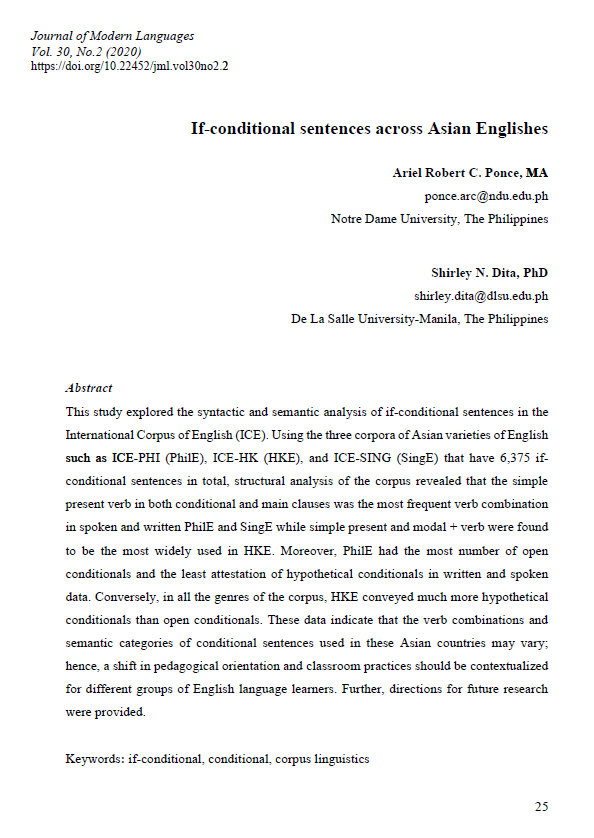If-conditional sentences across Asian Englishes
DOI:
https://doi.org/10.22452/jml.vol30no2.2Keywords:
if-conditional, conditional, corpus linguisticsAbstract
This study explored the syntactic and semantic analysis of if-conditional sentences in the International Corpus of English (ICE). Using the three corpora of Asian varieties of English such as ICE-PHI (PhilE), ICE-HK (HKE), and ICE-SING (SingE) that have 6,375 if-conditional sentences in total, structural analysis of the corpus revealed that the simple present verb in both conditional and main clauses was the most frequent verb combination in spoken and written PhilE and SingE while simple present and modal + verb were found to be the most widely used in HKE. Moreover, PhilE had the most number of open conditionals and the least attestation of hypothetical conditionals in written and spoken data. Conversely, in all the genres of the corpus, HKE conveyed much more hypothetical conditionals than open conditionals. These data indicate that the verb combinations and semantic categories of conditional sentences used in these Asian countries may vary; hence, a shift in pedagogical orientation and classroom practices should be contextualized for different groups of English language learners. Further, directions for future research were provided.
Downloads












